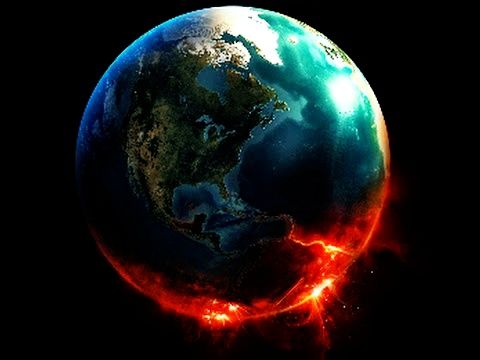Why I Think This World Should End

Life in a not-so-mean world
People have been feeling like the world is ending for thousands of years. But it wasn't until the 1970s, when a Hungarian professor named George Gerbner observed television's hold on the public, that someone developed a theory to diagnose the feeling.
Gerbner called it "mean world syndrome," and it referred to Americans' false belief that the world was getting more dangerous, even if statistics showed (and continue to show) otherwise.
A recent example is bullying. Despite rates of bullying going down in schools across the US, one study of Maryland students found that both students and parents believed rates hadn't changed much from 2005 to 2015. Meanwhile, bullying had actually decreased from 28.5% to 13.4%.
"Our perception of how common something is, is very important," Catherine Bradshaw, one of the study's lead authors, told NPR. The data might show one thing, but if people believe a different story is unfolding, they may replace a rational response with one of fear or panic.
The same holds for natural disasters. Research has shown they've been increasing in prevalence globally for the past 40 years, but not dramatically so. Even if each incident seems cataclysmic, the increase in frequency has been steady.
How to make sense of it all
Natural disasters fit the mean world syndrome because of a cognitive bias known as the "availability heuristic."
In the early 1990s, psychologists discovered the easiest memories to recall were those that were most unique or carried the strongest emotional weight.
The phenomenon helps explain why fiery plane crashes seem more likely than botched surgeries, even if the latter is far more common. It also explains why it's much easier to recall images of flooded streets and toppled buildings than any number of rosier events that might have happened recently.
These scenes are painted all over Twitter, Facebook, and the nightly news. For some people, disaster probably seems like the only thing happening right now.
The truth is, Hurricanes Harvey, Irma, and Katia took place in a hurricane-prone area during the peak of hurricane season. The last time multiple storms hit the area the same time was 10 years ago, and then 10 years before that. The availability heuristic states that these events seem apocalyptic because they consume our attention, even if the data suggest they are both predictable and rare.
What to really focus on
Mean world syndrome doesn't suggest the world is perfectly safe; it merely says the world isn't as dangerous as people believe, and that they should calibrate their concern according to overall trends of things like violence and crime, not isolated incidents.
Natural disasters and other violent weather events follow the same wisdom. Experts have said Hurricane Harvey was not the result of climate change, but also that storms of Harvey's nature have steadily gotten more common since the mid-1970s.
In other words, there's no sense in worrying about the fate of the world tomorrow, but if humanity doesn't take ownership of its role in warming the planet, things could definitely get worse.